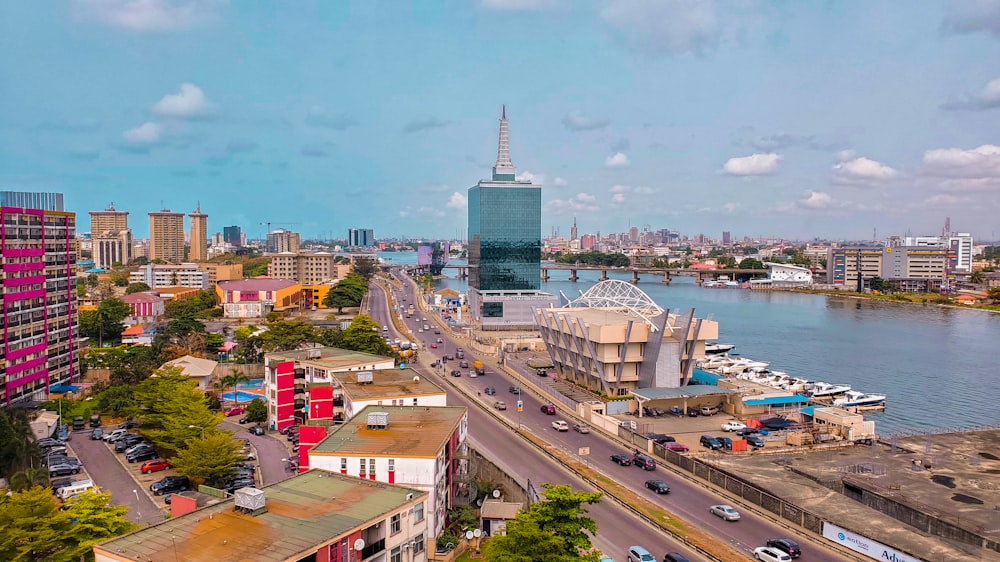What Makes Lagos City So Special?
Introduction
Lagos City, located in Lagos state, Nigeria, is a bustling metropolis that offers a unique blend of history, culture, and vibrant energy. As Nigeria’s largest city and one of the largest in sub-Saharan Africa, Lagos holds a significant place in the country’s past and present. From its humble beginnings as a Yoruba settlement to its status as a major economic hub, Lagos has a rich and diverse heritage. In this article, we will explore the key factors that make Lagos City so special, including its historical significance, urban landscape, cultural attractions, economic importance, and more.
A Brief History of Lagos
Lagos City has a fascinating history that dates back centuries. It was first settled by Yoruba fishermen and hunters in the late 15th century, who named it Oko. The area was later dominated by the kingdom of Benin, which called it Eko. In 1472, the Portuguese arrived on Lagos Island, kickstarting a slow but steady growth in trade. The Portuguese established a flourishing slave trade, and despite British attempts to suppress it, the slave trade continued until Lagos came under British control in 1861.
Initially governed as a British crown colony, Lagos became part of the Gold Coast Colony (modern Ghana) from 1866 to 1874. It regained separate status under a British governor in 1886 and was later amalgamated with the Protectorate of Southern Nigeria in 1906. Lagos became the capital of the Colony and Protectorate of Nigeria in 1914 and the capital of independent Nigeria in 1960. The city faced challenges such as slums, environmental pollution, and traffic congestion, leading to the development of a new national capital in Abuja in 1975.
The Vibrant Urban Landscape
Lagos City’s topography is dominated by a system of islands, sandbars, and lagoons. The original settlement on Lagos Island, now known as a slum area, still bears witness to the city’s early beginnings. However, the main business district on Lagos Island’s southwestern shore has transformed into the heart of the city, housing commerce, finance, administration, and education. Over the years, land reclamation efforts have connected some of Lagos’s islands, leading to the growth of a sprawling metropolis.
The cityscape of Lagos is a juxtaposition of towering multistory buildings, narrow streets in older neighborhoods, and bustling markets. The skyline is dotted with modern skyscrapers, symbolizing the city’s economic progress. The city’s architecture represents a blend of traditional and contemporary styles, reflecting its cultural diversity and influences from various periods of history.
Cultural Attractions and Heritage Sites
Lagos City is a major educational and cultural center, boasting several institutions that showcase Nigeria’s rich heritage. The University of Lagos, established in 1962, is a leading educational institution in the country. The city is also home to the National Library, Lagos city libraries, and the National Museum, which houses excellent examples of Nigerian arts and crafts.
One of the most iconic cultural attractions in Lagos is the Nike Art Gallery, founded by renowned Nigerian artist Nike Davies-Okundaye. The gallery showcases a vast collection of traditional and contemporary African art, providing visitors with a glimpse into the country’s artistic heritage. Another must-visit destination is the Freedom Park, a former colonial prison that has been transformed into a vibrant cultural center hosting art exhibitions, live performances, and festivals.
Economic Powerhouse
Lagos City’s economic importance cannot be overstated. It serves as Nigeria’s principal financial and commercial hub, attracting both local and international businesses. The city’s strategic location on the Gulf of Guinea and its well-connected transportation networks make it a gateway for trade and commerce. The port of Lagos, specifically Apapa Quay, serves as the primary outlet for Nigeria’s exports, while the road and railway networks connect Lagos to other parts of the country.
Lagos is a thriving hub for various industries. The city is known for its production of electronics equipment, automobile assembly, food and beverage processing, metalworks, and the production of paints and soap. Textile, cosmetic, and pharmaceutical manufacturing also contribute significantly to the city’s economy. Additionally, Lagos has a vibrant informal sector, with markets and street vendors playing a vital role in the local economy.
Lagos: A Melting Pot of Cultures
Lagos City’s cultural tapestry is a reflection of Nigeria’s diverse population. The city attracts people from different ethnicities and regions of the country, creating a melting pot of cultures. As a result, Lagos has a dynamic arts and music scene, with genres like Afrobeat gaining global recognition through musicians like Fela Kuti and Burna Boy.
The city hosts various festivals and events throughout the year, celebrating different aspects of Nigerian culture. The Eyo Festival, a traditional Lagos carnival, showcases colorful processions and masquerades. The Lagos International Jazz Festival attracts renowned jazz musicians from around the world, while the Lagos Fashion Week highlights the creativity and talent of Nigerian fashion designers.
Challenges and Future Development
While Lagos City has experienced remarkable growth and development, it also faces several challenges. The rapid urbanization has resulted in overcrowding, inadequate infrastructure, and traffic congestion. The government and urban planners are continually working towards addressing these issues and improving the quality of life for residents.
In recent years, there have been significant infrastructure projects aimed at transforming Lagos City. The construction of modern road networks, expansion of the airport at Ikeja, and ongoing efforts to improve public transportation systems are just a few examples of the city’s development plans. The goal is to create a sustainable and livable city that can accommodate the needs of its growing population.
Conclusion
Lagos City’s uniqueness lies in its rich history, vibrant urban landscape, cultural attractions, economic significance, and cultural diversity. From its early origins as a Yoruba settlement to its present-day status as Nigeria’s economic powerhouse, Lagos has undergone significant transformations. The city’s cultural heritage, educational institutions, and thriving arts scene make it a destination that offers something for everyone. As Lagos continues to grow and develop, it remains an essential hub in Africa, attracting visitors and businesses alike. So, whether you’re exploring its historical sites, immersing yourself in its cultural offerings, or witnessing its economic prowess, Lagos City is a truly special place that captivates all who visit.






